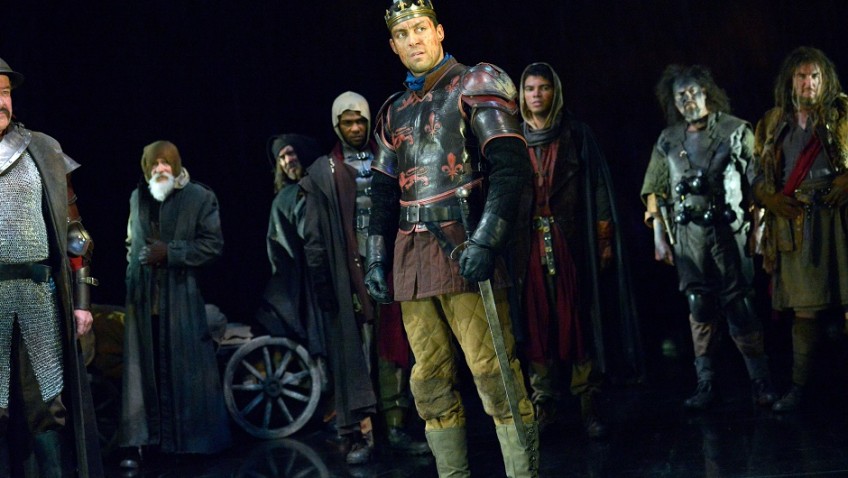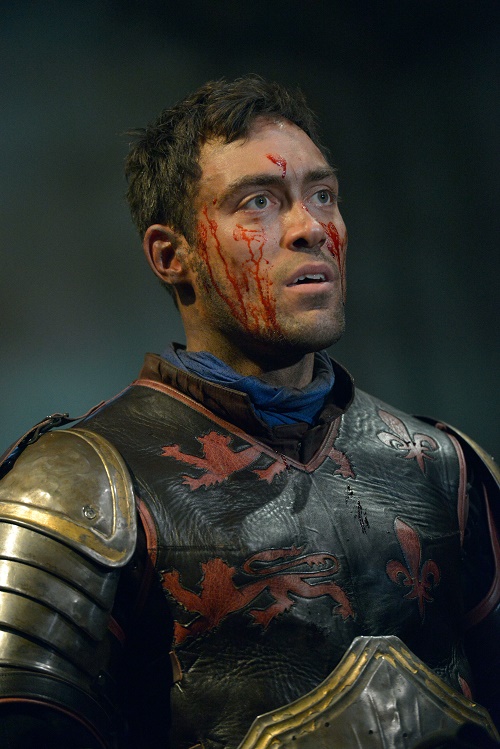Robert Tanitch reviews the RSC’s Henry V at Barbican, London EC2
The Battle of Agincourt was fought 600 years ago on 25 October, 1415. The French, who vastly outnumbered the English, were massacred. The victory was attributed to King Henry V, who was 29, and his longbowmen who could shoot eight arrows a minute
Shakespeare’s most jingoistic play has been regularly revived to boost morale in times of war: notably in 1805, the year of Trafalgar, in 1815, the year of Waterloo and in 1945 to coincide with D-Day in World War 2.
Jingoism is no longer fashionable. John Barton and Trevor Nunn rethought the play as an anti-war tract in 1966 and it was acted by Ian Holm and the RSC as if it were Mother Courage.
Kenneth Branagah’s 1989 film and Nicolas Hytner’s 2003 production for the National Theatre with Adrian Lister, performed respectively at the time of the Falklands War and the invasion of Iraq, have followed suit, taking their cue from the sentiments expressed by soldier Williams: “There are few that die well in battle.”
The king, once thought of as “the mirror of all Christian kings” is today much more likely to be considered a war criminal on account of his killing all the French prisoners. The ruthless action always shocks but it is a knee-jerk reaction to the killing of all the luggage boys. It is also more understandable when you appreciate the prisoners outnumbered the English soldiers and the French were liable to renew their attack.
The major weakness of Gregory Doran’s production is that you never believe you are watching King Henry. The irony is that the king is played by Alex Hassell who played the king’s younger self, Prince Hal, so well in Shakespeare’s Henry IV Parts 1 and 2.
 The great soldier, the great statesman, is not visible. There is no charisma, no authority, and no depth to the characterisation. Hassell always is what Henry says he is – just a man like anybody else.
The great soldier, the great statesman, is not visible. There is no charisma, no authority, and no depth to the characterisation. Hassell always is what Henry says he is – just a man like anybody else.
The exhortation, Once more unto the breach, is directed directly at the Barbican audience who, needlessly to say, remains seated. The grim warning to the citizens of Harfleur, as to what will happen to them, if they do not surrender, is also addressed to the audience, and thus both speeches lose their impact.
Oliver Ford Davies’s Chorus is schoolmasterly dull and Jennifer Kirby as the French Princess overdoes her English lesson. The one scene which really works is when Henry reads out the list of the dead and the English realize they have actually won the battle against all the odds. The biggest surprise is when Williams punches the king in the face and gets a big brotherly hug.





